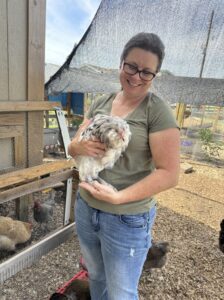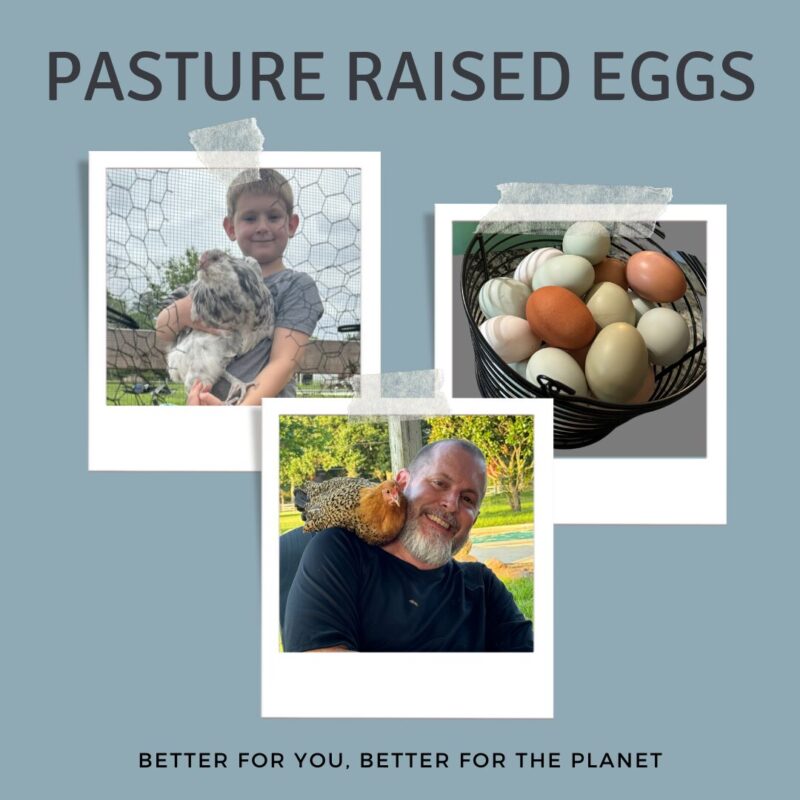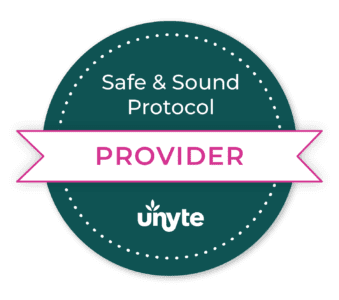You’ve probably seen “free-range” labels at the grocery store and wondered if those eggs are really any better for you or the environment. Well, it depends. Free-range can mean different things, and not all free-range eggs are created equal. Let’s break down what “free-range” really means at different scales and why pasture raised eggs—like the ones available from our resident crazy chicken lady—are worth the hype.
What Does “Free-Range” Really Mean?
When you see free-range on a carton in the grocery store, it doesn’t always mean chickens roaming happily across a wide open field. In large-scale commercial operations, free-range often means chickens have access to the outdoors, but that could be as limited as a small door leading to a cement-floored patio. Chickens might not spend much time outside or have space to roam freely as you’d imagine. Essentially, while these operations are a step above factory farming, the term “free-range” in this context doesn’t always guarantee much freedom.
On the other hand, small-scale pasture raised flocks—like those raised on a home farm—get true freedom. Chickens are allowed to forage naturally, eating bugs, grasses, and seeds. This richer, more varied diet leads to healthier chickens and, in turn, more nutrient-packed eggs. Plus, these chickens live a far more natural life, reducing stress and the need for antibiotics.
Nutritional Benefits of Pasture Raised Eggs
Free-range eggs from a small flock are usually more nutritious. Compared to large-scale free-range eggs, pasture raised eggs tend to have:
- Higher Omega-3 content: True free-range chickens that roam and forage produce eggs with significantly higher levels of Omega-3s, which are crucial for heart and brain health.
- Higher B12 Content: Eggs from pasture-raised chickens often have more vitamin B12, a vital nutrient for energy production, brain function, and red blood cell formation. Chickens that have access to foraging in open pastures typically get more varied and nutrient-dense food, which boosts the B12 content of their eggs.
- B9 (Folate): There’s evidence to suggest that pasture-raised eggs can also have higher levels of folate (B9), important for cell function and tissue growth. Again, the varied diet of free-range hens contributes to these elevated levels.
- More vitamins overall: Eggs from small farms are richer in Vitamin D (thanks to chickens being outside more) and Vitamin E, contributing to stronger immune function and better overall health.
Environmental Impact: Factory Raised vs. Pasture Raised
From an environmental standpoint, small-scale free-range farming has a much smaller carbon footprint than large-scale operations. Large farms, even those that qualify as free-range, still rely on mass production methods that contribute to pollution, excess waste, and higher resource use. On the other hand, small farms tend to practice more sustainable methods, produce far less waste, and maintain a healthier ecosystem balance.
Additionally, large-scale farms often have to supplement the chickens’ diet with processed feed, which can impact the nutritional quality of the eggs and the environmental footprint of the operation. Small-scale flocks rely more on natural foraging, meaning fewer resources are used for feed production and less waste ends up in the environment.
Why Support Your Local Crazy Chicken Lady?
 Now, let’s get personal. Our executive director has embraced her Crazy Chicken Lady title and runs a pasture raised flock of her own. These pampered chickens roam freely and feast on a varied, natural diet—resulting in eggs that are not only delicious but also packed with nutrients. Plus, they are SO much prettier. You can grab a dozen fresh eggs right here in the reception area. Trust us, your omelet will never be the same.
Now, let’s get personal. Our executive director has embraced her Crazy Chicken Lady title and runs a pasture raised flock of her own. These pampered chickens roam freely and feast on a varied, natural diet—resulting in eggs that are not only delicious but also packed with nutrients. Plus, they are SO much prettier. You can grab a dozen fresh eggs right here in the reception area. Trust us, your omelet will never be the same.
Choosing the Best for You and the Planet
Whether you’re buying eggs for nutrition, taste, or environmental sustainability, supporting small-scale pasture raised flocks is a win-win. You’re getting a superior product while also promoting ethical farming practices and reducing your environmental impact.
Next time you’re looking for eggs, think beyond the labels. Support local, eat better, and rest easy knowing you’re making a choice that benefits both your body and the planet.
-

Exploring the complexity of people and their stories, finding and celebrating redemption, strength, and courage in the wake of suffering, and seeking purpose and meaning in daily life—these are the pursuits I share with my clients. Every day, I’m in awe of the impossible things they accomplish. Truly, how lucky am I? Outside of my practice, I soak up life with my husband, three kids, a house full of animals, and more chickens than I ever expected.
View all posts
 (281) 305-9387
(281) 305-9387









